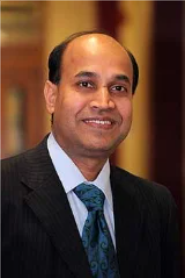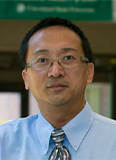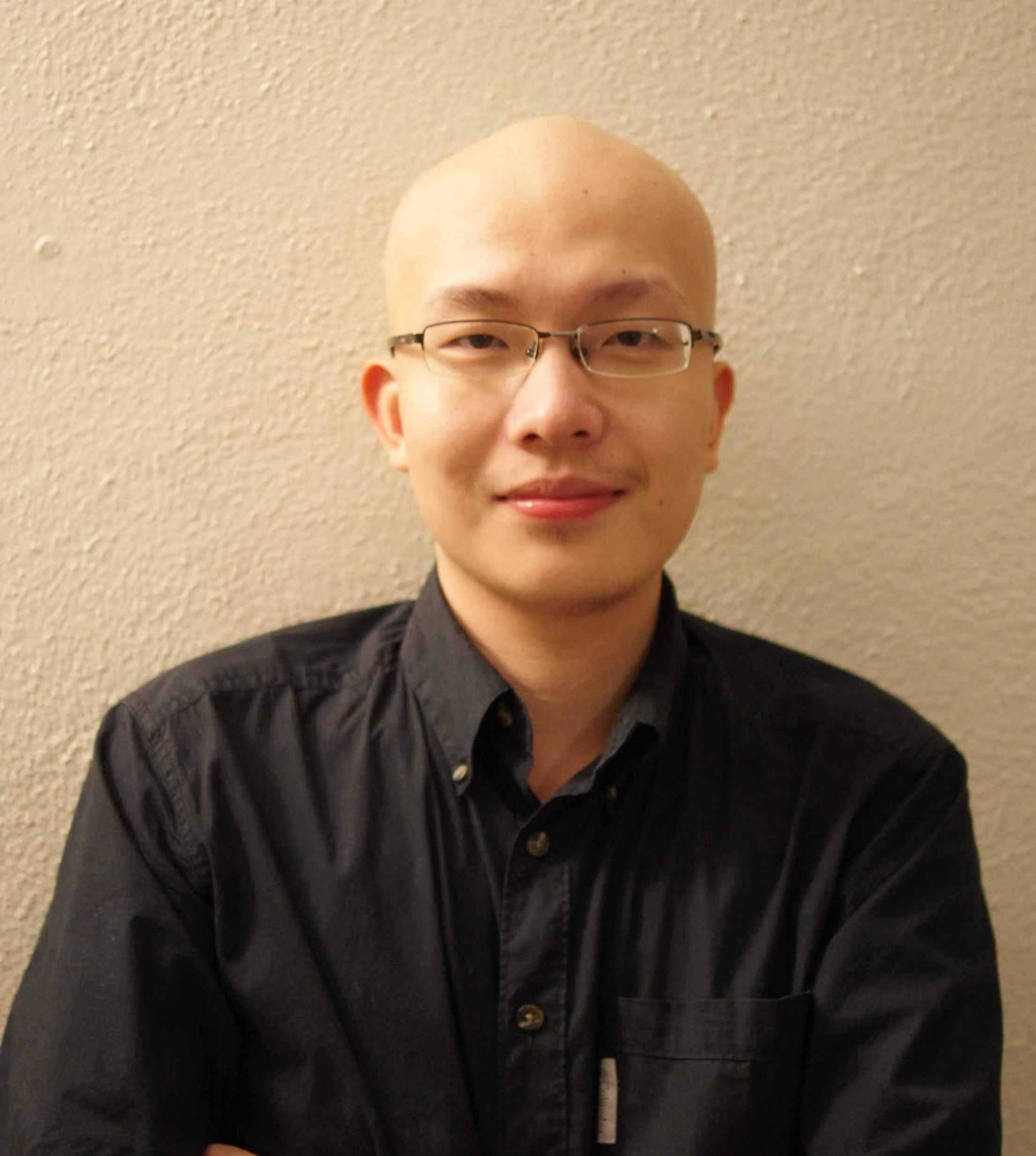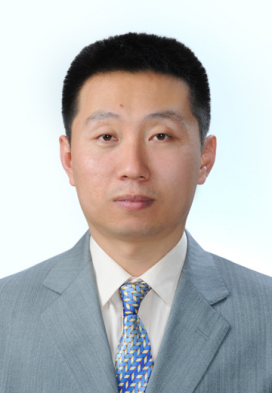Prof. Subhas Mukhopadhyay
IEEE Fellow
Macquarie University

Introduction:
Dr. Dr. Subhas Chandra Mukhopadhyay (M’97, SM’02, F’11) currently is working as a Professor of Mechanical/Electronics Engineering with the School of Engineering, Macquarie University, NSW 2109, Australia. He is the Discipline Leader of the Mechatronics Engineering Programme. He is also the Director of International Engagement for the School of Engineering. His fields of interest include Sensors and Sensing Technology, Instrumentation, Wireless sensor networks, Internet of Things, Mechatronics and Robotics etc. He has authored/co-authored 10 patents, 10 books, over 450 papers in different international journals, conferences and book chapter. He has edited eighteen conference proceedings. He has also edited thirty five special issues of international journals as guest editor and thirty six books. He is a FIEEE (USA), a FIET (UK) and a FIETE (India). He is a Topical Editor of IEEE Sensors journal, an Associate Editor of IEEE Transactions on Instrumentation and Measurements and an Associate Edior of IEEE Review of Biomedical Engineering. He is EiC of S2IS journal and Series Editor of Smart Sensing, Measurements and Instrumentation, Springer-Verlag. He was the Founding Chair of the IEEE Instrumentation and Measurement Society New South Wales, Australia Chapter and currently ex-chair of the chapter. He is also the Founding Chair of the IEEE Sensors Council New South Wales, Australia Chapter. He is a Distinguished Lecturer of the IEEE Sensors Council 2017-2022. He has delivered 416 seminars, including keynote, invited, tutorial and special talks.
Prof. Wenbing Zhao
Cleveland State University, USA

Introduction:
Dr. Wenbing Zhao is a full Professor of Electrical Engineering and Computer Science (EECS) at Cleveland State University [CSU], Cleveland, Ohio, USA. He obtained his B.S. and M.S. degrees in Physics from Peking University, Beijing, China, in 1990 and 1993, respectively, and his M.S. and Ph.D. degrees in Electrical and Computer Engineering from University of California, Santa Barbara, in 1998 and 2002, respectively. Prior to joining Cleveland State University in 2004, Dr. Zhao worked as a post-doctoral researcher at University of California, Santa Barbara, and as a senior research engineer/chief architect at Eternal Systems, Inc. (now dissolved), which he co-founded in 2000.
Dr. Zhao has done research in several different areas, including distributed computing, computer and network security, blockchains, smart and connected healthcare, machine learning, Internet of Things, quantum optics and superconducting physics. Dr. Zhao's recent research has been funded by the National Science Foundation, US Department of Energy, US Department of Education, Ohio Bureau of Workers' Compensation, Ohio Department of Higher Education, Ohio Advancement Office (via the Ohio Third Frontier Program), US Department of Transportation, Cleveland State University, and private companies.
Prof. Lantao Xing
Associate Editor for Franklin Open
Shandong University, China
Introduction:
Lantao Xing (M’19) received the B. Eng. degree in Automation from China University of Petroleum (East China), China, in 2013, and the Ph.D. degree in Control Science and Engineering from Zhejiang University, China, in 2018. From 2018.07 to 2019.10, he was with the School of Computer Science at Queensland University of Technology, Australia, as a Research Fellow. From 2019.10 to 2021.10, he was a Presidential Postdoctoral Fellow (one of the 12 awardees out of around 900 applicants in the 2019 round) at the School of Electrical and Electronic Engineering of Nanyang Technological University, Singapore. Since 2021.12, he has been with the School of Control Science and Engineering, Shandong University (SDU), China, as a Full Professor. He is currently supported by the Program of Distinguished Overseas Young Scholars (a very competitive talent project in China). Before joining SDU, he also got an Assistant Professor offer from Trinity College Dublin in Ireland, and a Lecturer offer from Napier University in UK.
His research interests include distributed control and optimization of microgrid systems, renewable energy systems, nonlinear system control, and applications. He has published 1 monograph and over 40 prestigious journal and conference papers. In particular, four of his first-authored papers published in IEEE TAC and Automatica are ESI highly-cited papers (top 1% in the engineering filed). He is also the winner of the Best Paper Award of ICIEA 2021 (TOP 1%).
Title: Distributed Control of DC Microgrid: The Concepts of VVD and VCD
Abstract:
Direct current (DC) microgrid is being increasingly investigated in modern power grid. An important issue in DC microgrid operation is to ensure proper current sharing among converters. While this has been addressed through droop control, the resulting voltage deviation in DC bus has to be compensated. To solve this problem, two new concepts in DC microgrid, i.e. virtual voltage drop (VVD) and virtual current directive (VCD), are proposed. With the dynamic averaging of VVD and VCD, it is shown that both current sharing and voltage stability can be simultaneously ensured. Simulations as well as experimental studies will be presented to demonstrate the effectiveness of the proposed control schemes.
Assoc. Prof. Xie Ming
IEEE Senior Member
Nanyang Technological University, Singapore
Introduction:
Xie Ming is holding the positions of Associate Professor at Nanyang Technological University, Editor-in-Chief of International Journal of Humanoid Robotics (Indexed by SCI/SCIE), Associate Editor of IEEE Transaction on Autonomous Mental Development, and Director of private companies. He has served as technical consultants to Asia Electronics Pte Ltd in 1994, Port of Singapore Authority in 1994, Delphi Automotive Systems Pte Ltd in 2001, ST Aerospace Ltd in 2006, Murata Electronics Pte Ltd in 2007, and Sony Electronics Pte Ltd in 2007. He has also worked with Renault Automation (Paris/France) in 1986, INRIA Sophia-Antipolis (Nice/France) between 1990 and 1993, and Singapore-MIT Alliance between 2000 and 2004. In addition, Xie Ming has served as the General Chair of International Conference on Climbing and Walking Robots in 2007, and International Conference on Intelligent Robotics and Applications in 2009. Xie Ming obtained his B.Eng in control and automation in 1984. At the same year, he was selected as one of Chinese government’s overseas scholars. Thereafter, he obtained the Master degree in industrial automation from the University of Valenciennes (France) in 1986, and the Ph.D degree in informatics from the University of Rennes (France) in 1989. He has published one best-selling book in robotics in 2003, and over 100 research papers so far. Xie Ming has taught a number of university courses such as Applied Machine Vision, Robotics, Computer Graphics, Statistical Process Control, and Physics. Xie Ming’s research strengths are in machine intelligence, humanoid robotics and autonomous vehicles. In total, he has won two scientific competition awards, and two best conference paper awards.
Assoc. Prof. Yunjian Xu
The Chinese University of Hong Kong, China

Introduction:
Dr. Xu is an Associate Professor in the Department of Mechanical and Automation Engineering (MAE) at The Chinese University of Hong Kong (CUHK). After receiving the Ph.D. degree from the Massachusetts Institute of Technology (MIT) in 2012, he worked at the California Institute of Technology as a CMI (Center for the Mathematics of Information) postdoctoral fellow in 2012-2013. He was an assistant professor at the Singapore University of Technology and Design (SUTD) in 2013-2017. His research interests lie in stochastic optimal control, reinforcement learning, power system optimization, and electricity market design. Dr. Xu has 1 U.S. patent application and was a recipient of the MIT-Shell Energy Fellowship.
Title: Optimal Policy Characterization for Action Space Dimensionality Reduction in Deep Reinforcement Learning
Abstract:
Motivated by emerging energy-intensive applications in electric vehicle charging and cloud computing, my research has focused on large-scale stochastic deadline scheduling problems under random task arrivals and processing cost. The objective is to minimize the expected sum of stochastic processing cost (due to intermittent renewable generation and fluctuating energy prices) and delay penalty cost (resulting from failures to finish tasks before user-specified deadlines). The hardness in these problems stems from the unknown dynamics of system uncertainties, and the high dimensionality in both the system state and action spaces. This talk overviews our research results on the rigorous establishment of structural optimal policy characterizations under discrete/continuous action spaces and convex/discrete delay penalties. The established optimal policy characterizations do not rely on any probabilistic assumption on the evolution of system uncertainties, and therefore can be naturally integrated into data driven deep reinforcement learning (DRL) approaches for action space dimensionality reduction without loss of optimality. Numerical results on real-world data show that the proposed approach outperforms state-of-the-art DRL and MPC (model predictive control) based approaches.
Prof. Qiang Wang
Heilongjiang Institute of Technology, China

Introduction:
He serves as professor, supervisor of master students doctor of engineering, post-doctor, vice president, Double first-class subject leader, provincial first-class professional leader, excellent teacher of Baosteel, school teaching master, Harbin young innovative talent, visiting scholar to University of Greenwich, visiting scholar to Tsinghua University, Senior member of China Society of mechanical engineering, member of China Society of Automotive Engineering. He has presided over more than 30 scientific research projects, published more than 90 academic papers and 2 academic monograph, and won 2 third prizes of Heilongjiang Provincial Science and Technology Progress, 2 first prize and 2 second prizes of Heilongjiang Provincial University Science and Technology Progress, and 36national patents.